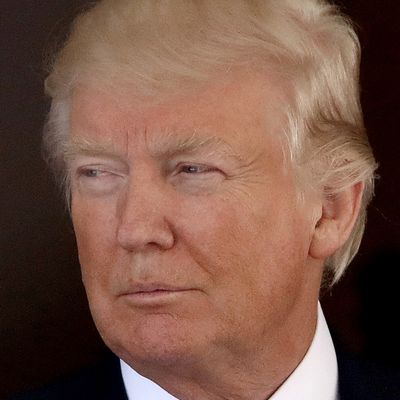
If you’ve been thinking that the firestorm President Trump set off on Sunday when he trumpeted the withdrawal of U.S. troops from northeast Syria feels familiar, you’re right. In December 2018, Trump announced his intention to withdraw all U.S. troops from Syria, surprising just about everyone: the European allies who also have troops there (at our request); the Kurdish forces who are working with the U.S. and bearing the brunt of the fighting against ISIS (while also being targeted by our NATO ally Turkey); Senate Republicans, who approved legislation rebuking the decision; and Trump’s own secretary of Defense and special envoy for the region, both of whom resigned in protest.
The president took a victory lap with his supporters and enablers, but as of mid-September nearly 1,000 U.S. troops were still in Syria. Diplomats and Pentagon officials understood that the situation was unsustainable and spent 2019 trying to broker a deal that would accomplish four contradictory objectives: allow U.S. troops to fully withdraw; protect more than 750,000 civilians and displaced persons in Syria; meet legitimate Turkish security concerns; and prevent the former ISIS fighters and families whom Kurdish forces are detaining from returning to the fight in the Middle East or Europe.
These goals would have been difficult to achieve even with expert and steady diplomacy, as Dana Shell Smith, who was U.S. ambassador to Qatar during the early years of the fight against ISIS, messaged me on Monday. “A lot of people disagreed with the decision to ally with the Kurds for this very reason,” she said. “We know ourselves and knew this would eventually be a problem. But a competent diplomacy accepts decisions that are made in good faith and works to mitigate the consequences for the good of the nation.”
Washington did feel it had made some progress, agreeing with Turkey that Kurdish forces would clear out of a five-mile zone along the Turkish border, where their presence would be replaced by joint U.S.-Turkish patrols. Even as the very first patrols were carried out, though, Turkish president Recep Tayyip Erdogan was continuing to trumpet his plans to move Turkish forces into Syria, defeat Kurdish troops, and send all of the Syrian refugees into a remote, scarcely populated area of Syria far from the Turkish border — and any humanitarian assistance.
Brookings scholar and former State Department official Amanda Sloat points out that what happened this weekend followed almost exactly the same pattern as last December. Administration officials were increasingly concerned with Turkish talk of imminent military action and scheduled a phone call between Trump and Erdogan with the intent of pushing Ankara back. Instead, both times, Trump came off the call and tweeted out a policy change that favors Erdogan but stuns our other allies and endangers U.S. troops still on the ground. (Yes, there are memcons of those conversations somewhere, and no, I wouldn’t be surprised if whistle-blowers or leakers make them public at some point.)
Both times, Trump’s announcement was met with intense concern from Britain and France, whose troops are in harm’s way alongside Americans, and from the Kurdish forces who may be destroyed at the hands of Turkey. As in December, there was pushback from Senate Republicans, and Trump responded by tweeting out threats against Turkey, should it attack the Kurds.
In some very significant ways, this incident is not a repeat — it’s much worse. Ten months ago, Trump only threatened to “devastate Turkey economically.” Now he’s moved on to this:
And while several weeks went by before U.S. troops were actually moved at the start of 2019, American forces began pulling back a day after Trump’s Sunday announcement. Turkey, having taken note of what happened (or didn’t) in December, said its preparations for a military operation in northeast Syria were complete, even as Pentagon officials were insisting to reporters that Trump had not endorsed their offensive.
The U.S. political climate is also much different now. Trump’s latest maneuver comes amid an impeachment inquiry sparked by his efforts to solicit foreign assistance in damaging his political rivals. There’s been plenty of open public speculation that this decision, too, might have been taken to benefit Trump’s business or political relationships, not in the national interest.
Trump’s latest Syria debacle will likely have terrible consequences, with the Kurds facing annihilation and some predicting an ISIS comeback. But so far, U.S. figures haven’t really ratcheted up their efforts to rein Trump in. No senior U.S. national-security figures seem poised to resign in protest. And while a few senior GOP leaders have publicly rebuked Trump, they’ve yet to make serious moves against him. The number of Republicans who’ve said this incident — Trump’s dodging of the national-security apparatus, his betrayal of our allies, and his weirdly grandiose tweets — proves he’s unfit for office is the same as the number who’ve said it’s unacceptable for the president to pressure foreign rivals for his own political benefit.
That would be zero. So why would Trump do anything differently this time, or the next?





























